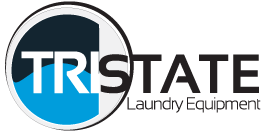- Gas Fired – Gas fired boilers burn Natural Gas. Natural Gas is chiefly Methane, but when it is removed from the ground, it may also contain Butane, Ethane, Pentane, and Propane. These other products are stripped out before the Natural Gas is sent down the pipeline. Natural Gas is one of the most efficient fuels to use for boiler operations because it is relatively inexpensive, energy efficient, dependable, and environmentally friendly. While Propane is used in similar ways, it is quite different from Methane. For instance, a smaller amount of Propane is required to produce the same amount of heat. The good news is that it is easy to compare costs because both are done based on BTU ratings. To learn more on how to compare costs, click here. There is a down side to installing gas – the initial investment can be rather costly depending on your current set up. We suggest bringing in a qualified technician to provide an accurate estimate of what is involved so that you can take the initial cost into consideration.
- Oil Fired – Oil fired boilers are particularly popular for homes and businesses that are not connected to gas mains. There are several downsides to going with oil. For instance, the cost of oil can vary greatly. You need to have an oil tank onsite or nearby and have oil delivered. Finally, oil fired boilers require more maintenance and attention because of dirt and soot buildup.
- Electric – Compared to gas or oil boilers, electric boilers are more efficient because there’s no need for an exhaust flue for waste; therefore, no heat escapes from the system. They also tend to take up less room than other boilers and can be more cost effective to install. Plus on top of all of that, they are quiet. On the downside, electricity is more expensive in most parts of the United States.
Summary:
To create the same quantity of steam, it costs
Natural Gas $3.87
Propane $10.14
Oil $12.40
Electricity $37.80
When you take a look at all the factors, not only is there a big difference when it comes to costs, keep in mind that Natural Gas is clean burning, and oil requires burner adjustments and maintenance to keep it in proper tune. While there are some positives to electricity, the high cost makes it impractical. Even though everyone doesn’t have access to Natural Gas, it would be beneficial to find a location that has it or petition your local gas company to expand into your area.
If you need help choosing a boiler, feel free to contact Tri-State Laundry Equipment Company. We are always glad to help.




No comments:
Post a Comment